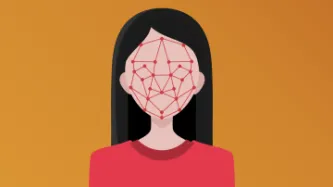Search
Content type: Examples
Following the largest protests seen on the island in decades, Cuba’s government introduced new social media regulations that make inciting acts that alter public order a crime, and ordered ISPs to shut off access for those who “spread fake news or hurt the image of the state”. Critics believe the new rules are intended to curb dissent, as the protests spread across the island from a small town, where the first protest was convened in an online forum and spread via a Facebook livestream. Deputy…
Content type: Advocacy
PI, together with 30 national and international civil society organisations (CSOs), release an open letter calling on Parliament and relevant stakeholders to halt and ban the use of live facial recognition technology (LFRT) by the police and private companies.We believe that the use of LFRT poses significant and unmitigable risks to our society. We do not believe that it can ever be safely deployed in public spaces or for mass surveillance purposes.The open letter comes as a result of a recent…
Content type: News & Analysis
As Amnesty International and Forbidden Stories continue to publish crucial information about the potential targets of NSO Group’s spyware, we know this much already: something needs to be done.
But what exactly needs to be done is less obvious. Even though this is not the first time that the world has learned about major abuses by the surveillance industry (indeed, it’s not even the first time this month), it’s difficult to know what needs to change.
So how can the proliferation and use of…
Content type: News & Analysis
Around the world, we see migration authorities use technology to analyse the devices of asylum seekers. The UK via the Policing Bill includes immigration officers amongst those who can exercise powers to extract information from electronic devices. There are two overarching reasons why this is problematic:
The sole provision in the Policing Bill to extract information rests on voluntary provision and agreement, which fails to account for the power imbalance between individual and state. This…
Content type: News & Analysis
It is difficult to imagine a more intrusive invasion of privacy than the search of a personal or home computer ... when connected to the internet, computers serve as portals to an almost infinite amount of information that is shared between different users and is stored almost anywhere in the world.
R v Vu 2013 SCC 60, [2013] 3 SCR 657 at [40] and [41].
The controversial Police Crime Sentencing and Courts Bill includes provision for extracting data from electronic devices.
The Bill…
Content type: News & Analysis
The Police, Crime, Sentencing and Courts (PCSC) Bill is currently being scrutinised by numerous civil society organisations such as Amnesty International UK and Liberty for its damaging impacts on peaceful protests, however it also contains important provisions regarding when, if and how the police and other governmental authorities can extract data from your phones and other electronic devices.
Chapter 3 of the PCSC Bill is a legislative response to the UK's Information Commissioner's Office…




